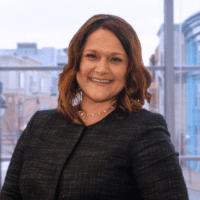On March 21, 2020, the Equal Employment Opportunity Commission (“EEOC”) issued updated guidance related to pandemic preparedness in the workplace and an employer’s legal obligations under the Americans with Disabilities Act (“ADA”). The March 21 updates deal specifically with the ongoing coronavirus pandemic and how employers can handle related issues without violating the ADA. A link to the EEOC’s updated guidance can be found on our website, and this notice will summarize the major points.
The major update to the guidance directly clarifies that the coronavirus pandemic constitutes a “direct threat” under the ADA. The ADA generally prohibits employee disability related inquiries or medical examinations unless they are job-related and consistent with business necessity. An inquiry is job related and consistent with business necessity if, among other things, an employer has a reasonable belief, based on objective evidence, that an employee will pose a direct threat due to a medical condition. At the beginning stages of the pandemic, there was still some uncertainty as to whether or not the coronavirus was severe enough to constitute a direct threat under the ADA definition. This guidance makes it abundantly clear that the coronavirus pandemic meets the direct threat standard. Accordingly, employers may take certain actions that otherwise might be prohibited under the ADA, including sending home employees who exhibit symptoms and applying CDC guidelines to determine under what parameters an employee can return to work after visiting an area with coronavirus outbreaks.
The amended guidance also clearly states that employers may screen job applicants during the hiring process for coronavirus symptoms and defer an employee’s start date, or even withdraw the job offer if an employee cannot safely enter the workplace. As always, our office can provide specific guidance to ensure that you remain in compliance with applicable law during this pandemic.

